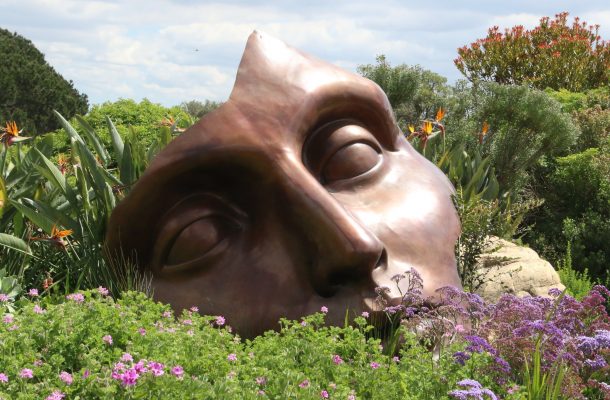Counterpoint by Mark Nicol – The idea of democracy

One thought that democracy, as a mode of governance, was a secular proposition.
Apparently not.
For that religiosity, with which it is clung to in politic society today, is certainly redolent of Middle Age dependence upon another institutional skirt-string – theology, the backbone of autocracy. Then there is the matter that one academic fraternity propping up the institution names its practice as ‘political science’, when the proper job of science is to discern natural truths, not sustain human ideologies.
The horizon of conception regarding formal modes of governance expressed unanimously, ad infinitum, and voluminously by the political commentariat in the West today, reminds me of that scene in the Blues Brothers:
Noting that the local Southern patrons seem disenchanted, (flying beer bottles), with the rhythm and blues music they are performing, Jake inquires of the hotelier:
“What sort of music do you have here ma’am?”
“O we have both kinds – Country and Western.”
Interestingly, it is the self-proclaimed intelligentsia of modern Western culture who run a parallel frame of mind. Despite the affected facade of rational, equanimous discussion, at the bottom line if you are not an adherent to democratic ideology and practice then you must be either a commie, or a fascist.
Of course it is the Right-winger who wants to crush the Communist, the Left-winger who wants to obliterate the Fascist. But the bipolar mindset is common to both kinds. And thus Democracy is our Country, our West – or watch out!
It’s funny that when the conservative mindset becomes unsure, insecure as regards the rational and physical tenability of a revered institution, a whole culture may go into rhetorical overdrive in order to keep the leaky ship afloat. (I shan’t dare to goad any relevant ideological cult, here, by summonsing some blasphemous caricature).
Roman Catholic culture, and the Persian dominated epoch of the Islamic, during the turn into the 2nd millennium cultivated academies where scholars largely attempted to reconcile ancient Greek philosophy, secular logic, with theological proposition. Despite drawing considerable abstract extrapolations from natural phenomena, Plato, and Aristotle, particularly, were revered for the brilliance of their rationalist theses.
Theistic scholars, philosophers, were intent upon garnering such rational credibility to the theological premise. But there is no rational argument that can support a fundamental lie, such as any claimed mortal appropriation of divine conception. The Andalusian Moslem, Ibn Rushd Averroes, 12thC, confronted this challenge, stating: “Truth cannot contradict truth”, (not that he abandoned theological conviction).
But Persia’s Al-Ghazali, 12thC, condemned Averroes’ over-questioning rationalism anyway. And, in penning “Revival of the Religious Sciences”, “Incoherence of the Philosophers”, Al-Ghazali is deemed an Hujjat-al-Islām, (prover of Islam).
Thus subjective assertion trumped objective reason, revealing no logical ratification for theological validity, and theist adherents forever bear the costs.
In mediaeval Christendom St. Thomas Aquinas, 13thC, was the most respected scholar, philosopher. He, too, was subsumed with the task of justifying theological ideology by ratifying it with the intellectual credence of Aristotelian logic.
But, ultimately, Aquinas deferred to the purely subjective assertion of theological precepts, stating that (secular) philosophy is: “falling short of the true and proper wisdom to be found in Christian revelation”, that “for the knowledge of any truth … man needs divine help.”
Within the realm of mediaeval Western discourse any over adventurous philosophers, such as Peter Abelard, 12thC, would be summarily excommunicated or interned by papal command.
So, if the whole exercise of reconciling rational philosophy with theological moralogy trudged a circuitous path, proscriptive political decree ensured that no-one broke the theological circuit. Everyone, in the Ancient Autocratic/Theocratic State, had to sustain the fundamental theist lie, which, after all, considerably sustained the despotic ancient regime.
The circuit-breaker in the development of Western philosophy, cosmological, volitional, was ventured by radical Enlightenment thinkers. I admire two individuals who articled iconoclastic propositions confuting autocratic dictums, authority.
In 1747 Julien Offroy de la Mettrie published “Man a Machine”, the definitive argument that man is just a material entity, devoid of metaphysical nature. This blatant refutation of Christian creationist doctrine, the fear of reprisal, prompted a swift flight to Prussia. In 1755 a pseudonymed author, ‘Mr. Morelly’, released a like inflammatory pamphlet, “The Code of Nature,” calling for the abolition of private capital, the establishment of communal labour plus egalitarian dividends.
I do not subscribe to the conception of a pure, materialistic cosmos. And, for logical reasons, the Communist economic vision is fundamentally flawed, unworkable. Nonetheless, it was the revolutionary voice of such Enlightenment philosophers, brave enough in thought, spirit, to deconstruct the supposed moral and logical veracity of theological and autocratic institutions, which brought us here:
We now live in a Modern Liberal Secular State, enjoying manifold freedoms and consequent technological, economic prosperity, such as could never have been cultivated in a stunting, proscriptive Ancient Autocratic State.
Yet, that said, if one dares to fundamentally critique democracy and its sustaining pillars, the egalitarian and liberal ideals, today, then one must expect to face intellectual and moral excommunication. And who or whom are the executors of this most paradoxical despotism, silencing any equal and liberal right to deconstruct idealized social equality and liberty?
The proscriptive and paranoid guardians of the Ancient Autocratic State lauded the sacred institutions of monarchy and theocracy, invoking the Tyranny of the Mighty. The politically correct sentries of the Modern Democratic State enshrine as sacrosanct the institution of egalitarian democracy, thus invoking the Tyranny of the Meek.
And meek, intellectually insipid, morally pathetic, is the calibre of volitional politics mustered under the 21st Century incarnation of Western democratic governance.
O those that protect the sacred shroud are mighty worried. China, having appropriated Western scientific, technological, economic, military prowess, yet sticking steadfastly to the Ancient political norm, autocratic governance, is clearly exhibiting superior geoeconomic, geopolitical potential.
And executive calibre, (or the power to dictate collective prerogatives), is clearly atrophying in the Western Democratic State, as harnessed executives struggle against or with the dumb bit of rampant populist power.
Curiously, it was academics who acted as conservative flag-bearers for the despotic theological and theocratic standards in the late Ancient Regime. Ditto today. It is conservative academics who act as pious unfurlers of red carpet for the despotic edifice of egalitarian democracy, in the dying days of the Modern Regime.
But how is it conceivable that that institution, which grants men equal inputs into politic governance, should somehow produce a tyrannous social contract?
The fundamental fault lays here: All men are not equal. And any social contract, design of politics, which is founded upon that fallacious first premise, it will inevitably and unerringly generate the appropriate dysfunctional results.
The dawning age of the Modern Democratic State, but a hundred years past, is, in the mythical lore of Western consciousness cast as some entrance into a Garden of Eden. Certainly, this contractual world founded upon universal and equal liberation was always going to deliver far more in moral freedoms, physical prosperity, expressive diversity, than any contractual world founded upon the inverse moral principles.
Yet the contractual world we hopefully but reactively bit into, ordination of that Egalitarian Contract supplanting the Supremacist, also contained a poisonous untruth, albeit a potion more subtle, less toxic. Nonetheless, the confounding fault in the fabric of democracy, (once the at first timorous Commons rises in confidence of its powers to assert its genius), is the utter paucity of pedigree in that ‘collectivist vision’.
Via the agencies of Commons Internet politicking, a press that must compete in haranguing, pollsters that track every shift in response to the populist whip, and an academic clique that also wants to blame the lamed horse not the lamer, the plebiscite, 21st Century democratic governance has become considerably dysfunctional. Why?
Because the executives of this corporation have to please all participant workers, every selfish, short-sighted, and opposing cry for deliverance, rather than tend to any imperious business vision. Try running a business like that.
What is the root cause of democracy laying lame? It is the unthinking, sanctimonious, desecrating ordination of egalitarian principle, a vast over-reaction to Ancient World ordination of the supremacist. It is a desecration of moral and intellectual decency, and an anarchistic abnegation of intelligent volitional conduct, when the lazy, dumb animal dictates prerogative to the conscientious, intelligent animal.
The egalitarian vote franchise awards this political power to the common man, when it is the uncommon man who commands greater powers of vision.
Nothing that is unearned has much worth. Awarding political powers, supreme or equal, upon the indiscriminate basis of birthright, produces devalued prerogatives. Nature doesn’t allow for a democracy of ideas: only rational ideas work. Ultimate functionality, prosperity, decency, will be delivered by a political order discerning the merits of individuals participating in the collective prerogative.
Part two of this essay will be published next week.
Mark Nicol is based in Adelaide and has written four environmentalist books offering his perspectives on cosmology, human history and economic, political, religious, and educational institutions.












